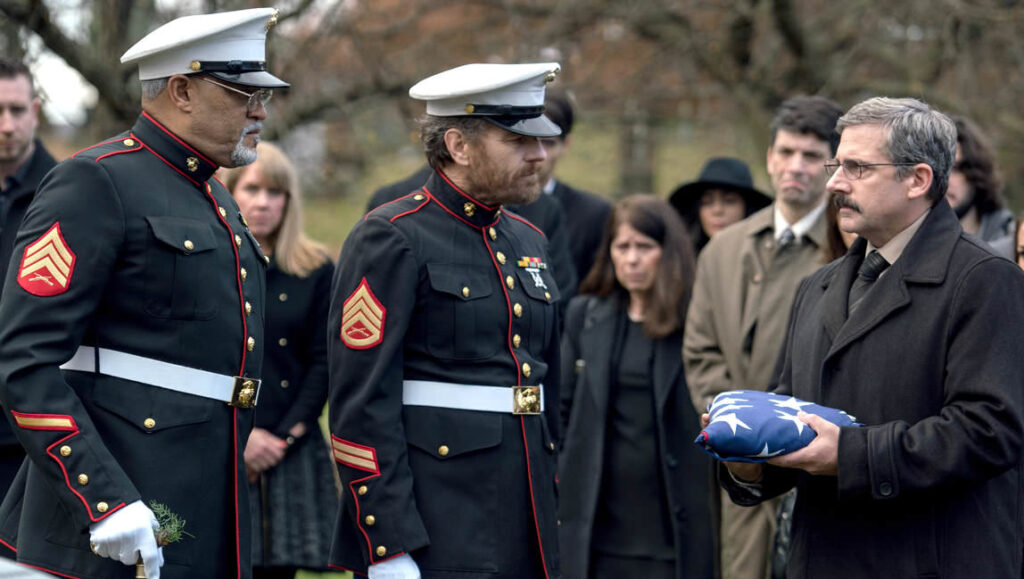Richard Linklater is a talented director, but it feels like he may be running out of ideas. Last Flag Flying, based on the Darryl Ponicsan novel of the same name, transposes the three Vietnam War soldiers from Hal Ashby’s The Last Detail into a politically turbulent 2003. Bryan Cranston, Laurence Fishburne, and Steve Carell replace Jack Nicholson, Otis Young, and Randy Quaid, respectively, playing three friends reunited to bring the body of Doc’s (Carell) son home after he’s killed in Baghdad. Carell is the standout, believably darting across the spectrum from happy to sad, while the charismatic Cranston and Fishburne, who are given less to do, tend to overact. But something aside from the performances is definitely off here. One expects a level of craftsmanship from Linklater, whose writing tends to simultaneously explore big ideas and exude a certain social realism. The conversations in Linklater’s films are supposed to bring out character complexities, to bring about dynamic changes, but all the principles here rarely come off as more than one-note constructs, consigned to enforce their roles. Sal (Cranston) is the devil on Doc’s shoulder while Richard (Fishburne)—who is literally a preacher—obviously is intended to be the angel.
Last Flag Flying works best when it is simply a hangout movie about old friends: scenes of characters reliving their past memories break them out of their rigid archetypes, and feel genuinely sincere. On the other hand, when Linklater engages broader philosophical reflection, it tends to just feel obnoxious, as if his characters were loud mouthpieces for whatever ideas he felt like exploring on set that day. One conversation, during the opening scene of the film, finds Sal yelling about the illusion that is reality television, and how viewers are kept in a “dream state.” Cue the loud groans from tired audiences—does anybody find this kind of commentary eye-opening?
Published as part of New York Film Festival 2017 | Dispatch 2.


Comments are closed.